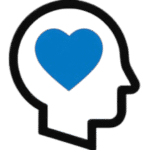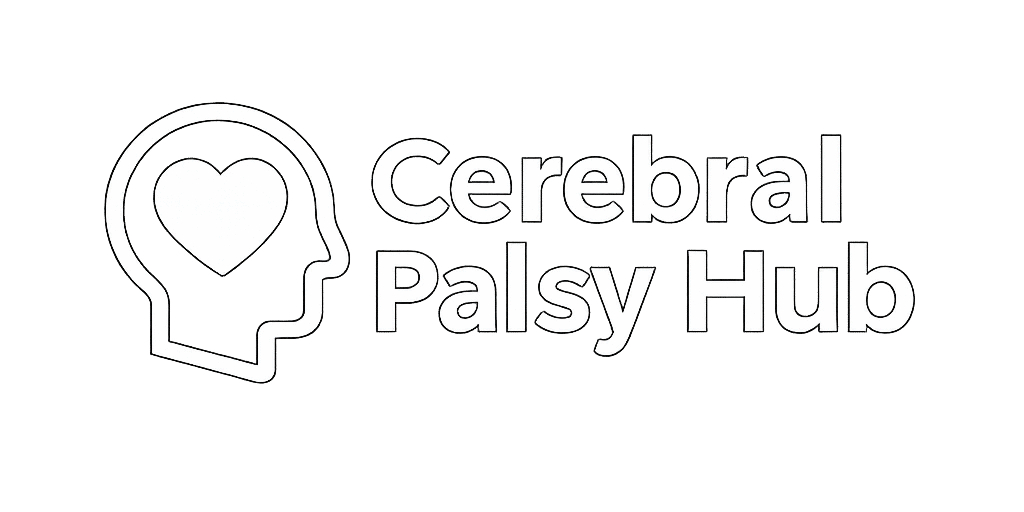Medications for Cerebral Palsy
Doctors often prescribe different kinds of medications to children with cerebral palsy to help manage symptoms such as muscle stiffness, seizures, and to relieve general pain and discomfort.
How Do Medications Help?
Medications cannot cure cerebral palsy but they can make daily life easier by reducing symptoms that cause discomfort or limit movement. They can ease muscle stiffness, control seizures, manage pain, and calm involuntary movements.
Doctors will prescribe different drugs based on individual needs, and they are usually combined with other treatments such as physical therapy or surgery, and whether any secondary symptoms need treatment.
What Are the Most Common Medications for Cerebral Palsy?
Families often want to know what medicines are most frequently used to treat cerebral palsy. Depending on the symptoms and severity, some of these may be prescribed for short or long-term use.
Common types of medications prescribed include:
-
Antispastics (reduces muscle stiffness and improves movement control)
-
Anticholinergics (helps control twisting, writhing, or jerky involuntary movements)
-
Anticonvulsants (controls seizures and protect brain health)
-
Analgesics (reduces mild to moderate pain and discomfort from muscle or joint strain)
-
Muscle relaxants (relieves severe muscle tightness and improve range of motion)
-
Antidepressants/Anxiolytics (supports mood and emotional well-being associated with chronic pain or stress)
-
Botulinum toxin (temporarily relaxes targeted muscles to improve function and reduce spasticity)
-
Sedatives (helps with sleep disturbances or nighttime muscle spasms)
-
Gastrointestinal agents (manages side effects like reflux or constipation caused by other CP medications)
The average lifetime cost to care for a child with cerebral palsy is over $1.6 million. Find out how you can get help to pay for your child's treatment. Get a free case review now.
100% free and confidential.
Medications for Spastic Cerebral Palsy
Muscle stiffness and tightness, also known as spasticity, is one of the most common challenges for children with spastic cerebral palsy. Medications target overactive and stiff muscles to improve movement and reduce discomfort.
Oral options such as Baclofen (Lioresal, Gablofen), Diazepam (Valium), and Tizanidine (Zanaflex) are often prescribed first in milder cases.
In cases where spasticity is more severe, intrathecal baclofen pumps deliver medication directly to the spinal cord.
Botulinum toxin (commonly known as Botox) can be injected into specific muscles to provide relief from stiffness.
Common side effects from spasticity medications include:
-
Baclofen (Lioresal, Gablofen): drowsiness, weakness, dizziness, nausea, low blood pressure
-
Diazepam (Valium): sedation, fatigue, confusion, risk of dependence
-
Tizanidine (Zanaflex): dry mouth, low blood pressure, drowsiness, liver enzyme changes
-
Intrathecal baclofen pump: infection, catheter problems, withdrawal symptoms if pump malfunctions
-
Botulinum toxin (Botox): temporary muscle weakness, pain at injection site, flu-like symptoms
Medications for Involuntary Movements
Children and adults with CP may experience twisting, writhing, or jerky movements, especially those with dyskinetic cerebral palsy. Medications can calm these movements.
Trihexyphenidyl (Artane) is commonly prescribed for dystonia and muscle control. In some cases, Clonazepam (Klonopin) is used for tremors or sudden, uncontrolled motions. These drugs do not completely eliminate involuntary movements, but rather reduce their intensity.
Possible side effects of involuntary movement drugs include:
-
Trihexyphenidyl (Artane): dry mouth, blurred vision, constipation, confusion
-
Clonazepam (Klonopin): drowsiness, fatigue, unsteadiness, risk of dependence
Seizure Control Medications
Co-occurring disorders such as epilepsy and seizures affect up to one-third of people with cerebral palsy, making anticonvulsants an important part of care. Commonly prescribed drugs include Levetiracetam (Keppra), Valproic Acid (Depakote), Carbamazepine (Tegretol), and Lamotrigine (Lamictal).
These medications are known as barbiturates and benzodiazepines which slow down the central nervous system and brain activity, preventing seizures.
Doctors will often start off with one medication and adjust as needed to balance seizure control with side effect management. Seizure control is important for protecting cognitive development, safety, and overall well-being.
Anticonvulsant side effects to watch for:
-
Levetiracetam (Keppra): sleepiness, irritability, dizziness, weakness
-
Valproic Acid (Depakote): nausea, tremor, weight gain, liver toxicity, hair loss
-
Carbamazepine (Tegretol): dizziness, drowsiness, nausea, low blood counts
-
Lamotrigine (Lamictal): rashes, dizziness, headache, sleepiness
Pain Management Medications
Chronic pain in cerebral palsy can result from muscle tightness, orthopedic complications, or daily strain on the body. Over-the-counter options like Acetaminophen (Tylenol) and NSAIDs (Ibuprofen — Advil, Motrin; Naproxen — Aleve, Naprosyn) are used for mild to moderate pain.
For more severe pain, stronger prescription pain relievers (opioids — OxyContin or Vicodin) may be considered. In some situations, antidepressants or anti-anxiety medications like (Fluoxetine — Prozac, Sertraline — Zoloft, Diazepam — Valium) are added to help manage emotional strains from ongoing pain.
Pain relief drug side effects may include:
-
Acetaminophen (Tylenol): liver toxicity at high doses
-
NSAIDs (Ibuprofen — Advil, Motrin; Naproxen — Aleve, Naprosyn): stomach upset, ulcers, kidney issues, increased bleeding risk
-
Prescription pain relievers (opioids — OxyContin, Vicodin): drowsiness, constipation, nausea, risk of dependence
-
Antidepressants/Anxiolytics (Fluoxetine — Prozac, Sertraline — Zoloft, Diazepam — Valium): nausea, sleep changes, dizziness, mood changes
Quick Fact: All medications can potentially cause side effects such as drowsiness, weakness, digestive issues, or mood changes. Getting regular check-ups, blood tests, and communicating with doctors is crucial for maintaining effectiveness and safety.
Can Medication Treat Secondary Conditions?
In addition to spasticity, involuntary movements, seizures, and chronic pain, many people with cerebral palsy experience other secondary conditions that can also be managed with medications.
Sleep Disturbances
Difficulty sleeping is common in cerebral palsy, often caused by nighttime spasms, chronic pain, or anxiety. Medications like melatonin, clonidine, or benzodiazepines may be prescribed to improve sleep cycles and help patients stay asleep longer.
In more severe cases, sedatives such as zolpidem (Ambien®) can be considered under close supervision. Poor sleep affects rest and can worsen daytime function and muscle fatigue, and slow recovery.
Digestive and Gastrointestinal Issues
Reflux, constipation, and swallowing difficulties often result from abnormal muscle tone in the digestive tract or side effects of other medications. Proton pump inhibitors such as omeprazole can control reflux, while stool softeners or polyethylene glycol are used for constipation.
In cases of significant gastrointestinal dysmotility, prokinetic agents may be considered. Managing digestion with medications allows for better nutrition absorption and reduced discomfort.
Mental Health and Behavioral Challenges
Many people with cerebral palsy experience depression, anxiety, irritability, or behavioral outbursts, often because of chronic pain, communication difficulties, or frustration with their physical limitations.
Medications such as selective serotonin reuptake inhibitors (SSRIs) like fluoxetine (Prozac®) or sertraline (Zoloft®) are used to manage mood disorders.
For more severe behavioral issues, atypical antipsychotics such as risperidone (Risperdal®) or aripiprazole (Abilify®) may be prescribed, while benzodiazepines like diazepam can address both anxiety and muscle tension.
Drooling and Oral Control
Excess saliva production and drooling can cause skin irritation, social difficulties, and risk of aspiration. Anticholinergic drugs such as glycopyrrolate or scopolamine patches reduce saliva by blocking nerve signals to salivary glands.
Botulinum toxin injections into the salivary glands may also be used when oral medications are not effective. Glycopyrrolate is commonly chosen for children because it reduces drooling without crossing the blood-brain barrier as strongly as other drugs.
Bone Health and Fragility
Limited mobility and abnormal muscle forces put children and adults with CP at risk for low bone density and fractures. Bisphosphonates such as alendronate (Fosamax®) are sometimes prescribed to strengthen bones.
Vitamin D and calcium supplements are also recommended for prevention. In more severe osteoporosis cases, intravenous bisphosphonate therapy can be used to reduce fracture risk.
Muscle-Related Fatigue
Persistent muscle overuse from spasticity or abnormal gait patterns can cause fatigue. Studies show that medications like amantadine improve fatigue and alertness in neurological conditions, however they are not standard in CP care.
Stimulants such as methylphenidate may also be considered when fatigue overlaps with attention difficulties. This area of treatment is also less common but can be useful in certain cases.
Bladder Control and Incontinence
Neurogenic bladder and urinary incontinence can occur in people with CP due to poor muscle coordination. Anticholinergic drugs such as oxybutynin (Ditropan®) and tolterodine help relax the bladder muscle and reduce urgency to urinate.
Medication Delivery Methods
Medications can be taken orally, injected, or delivered via implantable pumps. Injections like Botox target specific muscles, while intrathecal baclofen pumps provide continuous delivery for severe spasticity. Doctors will choose the best method based on its effectiveness and the patient's needs.
Many cases of cerebral palsy are caused by preventable birth injuries. If you think your child's CP was due to medical negligence, contact us now and get a free case review at zero cost.
Case reviews are 100% free.
I understand by submitting this form that I am providing my consent to be contacted by Cerebral Palsy Hub and its legal partners, potentially using automated technology, at the number provided regarding my potential claim/their services. Consent is not required to use their services. Msg frequency varies, and message and data rates may apply. Reply HELP for help or STOP to unsubscribe. SMS Terms of Service. I understand and agree that by submitting this form I agree to the Privacy Policy and Terms of Use and that this form does not create an attorney-client relationship and is not confidential or privileged and may be shared.
Medications for Cerebral Palsy FAQs
 Written and Medically Reviewed by:
Written and Medically Reviewed by:
Cerebral Palsy Hub Team
Cerebral Palsy Hub was founded to help support children and their families with cerebral palsy and to create a safe space for those affected. We strive to provide the most accurate, up-to-date information, and tools to help give your child the life they deserve.
Last Updated: September 24, 2025
Need Legal Help?
Our team of legal experts can help answer your questions.
Our team of legal experts can help answer your questions.
